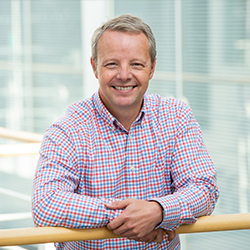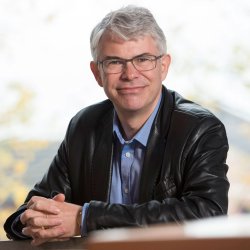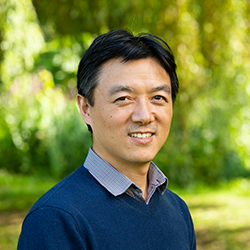CVSSP researchers win two awards at DCASE 2020
A team from Surrey’s Centre for Vision, Speech and Signal Processing (CVSSP) picked up two prestigious awards at the 2020 International Workshop on Detection and Classification of Acoustic Scenes and Events (DCASE 2020).
The DCASE Challenge, which this year was an online event hosted from Tokyo, is an annual competition that asks entrants to create new methods to recognise sounds. This year, the Challenge had six tasks relating to acoustics and machine learning, an area in which CVSSP’s Machine Audition Lab excels.
Its members explore technologies for sound-related machine perception, augmentation and reproduction, and they’ve made significant strides in enabling machines to understand the types of sounds and acoustic environment surrounding them.
So the challenges presented at DCASE 2020 were a perfect fit.
Urban soundscapes
The Machine Audition Lab’s first success came in the Urban category, where entrants were asked to refine machine listening tools to aid in the monitoring, analysis and mitigation of urban noise pollution.
CVSSP’s winning paper, Incorporating auxiliary data for urban sound tagging, suggested ways in which peripheral factors could be used to help machines identify noises in busy urban landscapes at a given time.
Authored by third-year PhD student Turab Iqbal, Research Fellow Dr Yin Cao, Professor Wenwu Wang and Professor Mark Plumbley, this entry won the Judges’ Award and was praised as “interesting” and “innovative”.
“I’m honoured our work on urban sound tagging was chosen for the Judges’ Award,” says Turab. “It’s affirmation of the good work we do at CVSSP and the University as a whole.”
Localisation
The second success of the event came in the Localisation category. In this, entrants were asked to create a piece of machine listening software that could not only identify polyphonic sounds but decide where they were coming from.
The Machine Audition Lab’s winning paper, Event-independent network for polyphonic sound event localisation and detection, proposed a novel event-independent network that used three types of recognition software to perform this feat.
Authored by Dr Yin Cao, Turab Iqbal, former Surrey PhD student Dr Qiuqiang Kong, visiting PhD student Yue Zhong, Professor Wenwu Wang and Professor Mark Plumbley, this entry won the Reproducible System Award. CVSSP won this accolade in 2019, too.
“It’s enjoyable that we’ve won this award two years in a row,” adds Dr Cao. “We endeavour to distribute our ideas and achievements to other researchers unreserved.
“We hope this can help to push the field forward.”
Pioneering
These latest successes can be added to the pioneering work CVSSP has already done in this area. This includes inventing state-of-the-art artificial intelligence (AI) systems that can recognise sounds from either indoor or outdoor environments. This has many applications, including robotics, security surveillance, home smart devices and environmental monitoring.
Professor Wenwu Wang comments: “These awards demonstrate the outstanding quality of the work by the CVSSP audio team at Surrey in the area of machine audio perception.”
Professor Mark Plumbley, Head of School of Computer Science and Electronic Engineering, says: “I’m pleased the outstanding work of our PhD students and researchers has been recognised in this exciting and rapidly developing field.”
Professor Adrian Hilton, Director of CVSSP, adds: “This is a great achievement, building on the CVSSP audio team’s success in previous DCASE challenges.
“The awards demonstrate the world-leading contribution of our research in AI for sound, pioneering methods to understand the world through the primary human senses of hearing and seeing.”
Learn more about studying for an MSc in Artificial Intelligence or a PhD at our Centre for Vision, Speech and Signal Processing.






